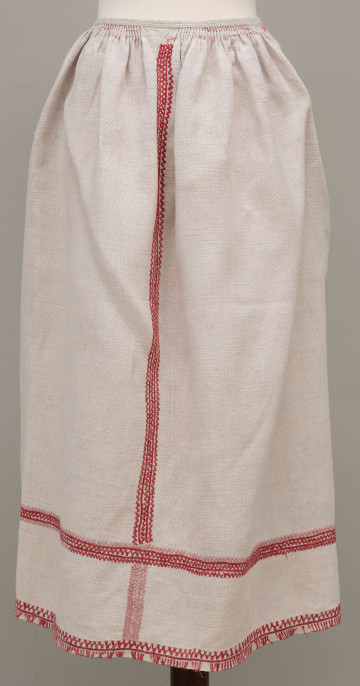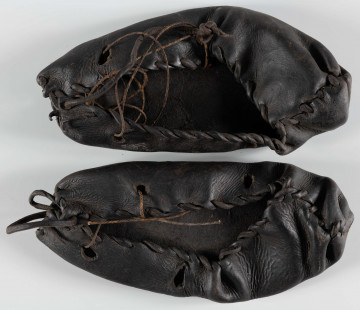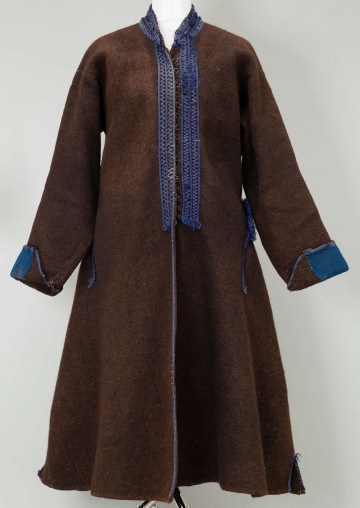
Pinafore
1901 — 1950
National Museum in Lublin
Part of the collection: Folk craft of the Lublin Region (19th/20th c.)
The red-cream selvedge with geometric patterns comes from the village of Lipiny Dolne and was purchased around 1900. It is a factory-made product (width 4.5 cm, length 230 cm). It was used as a belt to tie the festive summer dress of young women. It was used to girdle two or three times around the waist of a skirt, apron or shirt and tied in a knot at the side. In the Biłgoraj region, they were bought at fairs or markets. The pattern is double-sided, a mirror image. On one side, it is made of warp threads, on the other of weft threads. This way of weaving causes red to be the background and the pattern at the same time. ‘Krajkas’ varied in length, but their width did not exceed 5 cm.
They were also used in other Lublin costumes, both in this region and in the territory of Central and Eastern Europe. They were a common element of everyday and festive clothing. Although inconspicuous, woven belts occupied an important position in folk culture. Villagers usually used weaving boards, called board or ‘tabka’, or corded weaving machines. In the latter case, the warp was tied to a belt and fence or a hook in the wall or stretched over the weaver's legs. The method was called ‘on leg’ and made it possible to weave selvedges at any free moment. It was woven in this way especially in north-eastern Poland and in the neighbouring territories of Lithuania, Belarus and Ukraine. Nowadays, selvedges are still used in folk costumes worn by folk groups and are also appreciated by designers creating ethno collections.
Author / creator
Dimensions
cały obiekt: height: 4,5 cm, width: 230,5 cm
Object type
selvedge
Technique
weaving
Material
wool
Creation time / dating
Creation / finding place
Owner
The National Museum in Lublin
Identification number
Location / status

1901 — 1950
National Museum in Lublin

1895 — 1914
National Museum in Lublin

1895 — 1914
National Museum in Lublin
DISCOVER this TOPIC
Museum of King Jan III's Palace at Wilanów
DISCOVER this PATH
Educational path